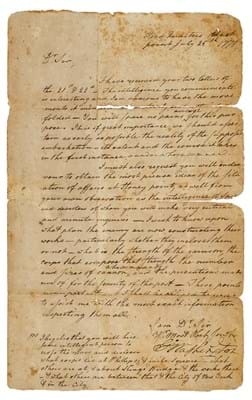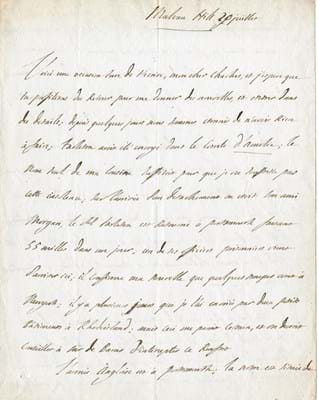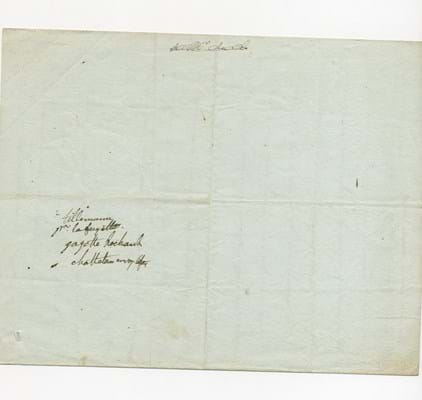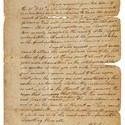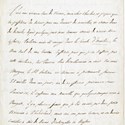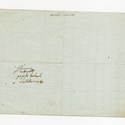A May 4 sale of books and manuscripts to be held by the Paris auction house Millon includes a letter written by the Marquis de Lafayette to his close friend the Comte de Charlus, who was aide de camp to Maréchal de Rochambeau, commander of the French expeditionary force.
The letter, which is dated July 20, 1781, and written while Lafayette is in Malvern Hill, Virginia, describes manoeuvres against the British troops; takes stock of the positions of French troops under Rochambeau and the Comte de Grasse and also mentions Lafayette’s espionage skills which have provided tactical information. The estimate for this two-page, personal missive, written at a key period during the French campaign in America, which has come from a French private collection, is €20,000-30,000.
Camp communication
A communication from camp signed by Lafayette from a few days later than the Millon letter features in a mixed-discipline spring sale to be held by Pook & Pook in Downingtown, Pennsylvania, on April 28.
It is part of a group of letters relating to the war from the estate of Robert S Knox of New Oxford, Pennsylvania.
This communication is dated August 13, 1781. At this point the British fleet and army under Cornwallis had landed at Yorktown and commenced building fortifications. It was probably written by James McHenry and reads: “Dear Sir, Capt Gaines (probably James Taylor Gaines) carries important dispatches for General Greene and as we have not a horse fit for the journey, I beg to recommend him to your order.” It has an estimate of $2000-4000.
The star turn in Pook & Pook’s manuscript section is a letter from earlier in the war written by George Washington on July 25, 1779, from headquarters at West Point to Henry Lee.
The letter relates to the British forces’ attempt to make their way up the Hudson river under Sir Henry Clinton with a view to driving Washington from his West Point stronghold. Washington’s letter is a response to information supplied by Lee, discusses British troop movements and strength and requests further reconnaissance in the area occupied by the British.
Having taken the fortified Stoney Point on July 15, the Americans lost it four days later, finally retaking it in October that year.
Washington’s letter has an estimate of $20,000-30,000.


